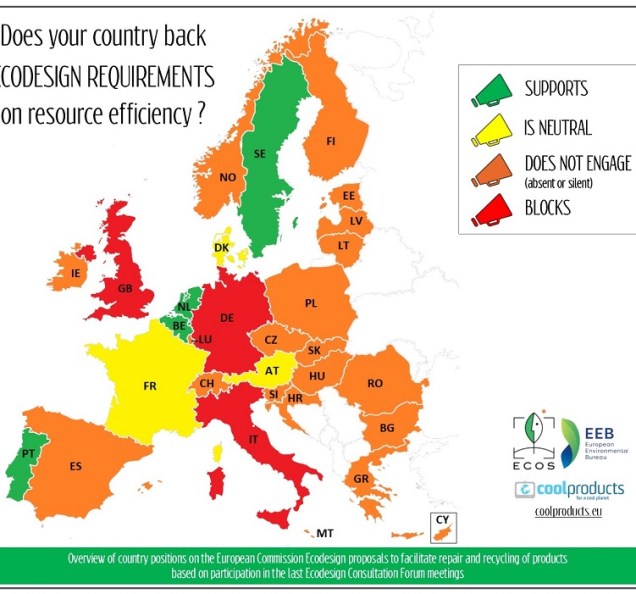Governments are blocking EU proposals that would oblige manufacturers to make certain products, including washing machines and TVs, more easily repairable and recyclable.
Consumer products should last longer and be easier to repair and recycle, according to the European Commission and Parliament.
The EU institutions have called for mandatory ‘ecodesign’ standards, which would gradually remove from the market products that are difficult to repair and recycle. Products for now include dishwashers, washing machines, fridges, lights, TVs, displays and servers.
But some governments are opposing the proposals that are currently being discussed in Brussels, NGOs led by ECOS and the European Environmental Bureau (EEB) warned this week.
Germany, Italy and the UK are against the move, while France, Poland and Spain are either completely disengaged or have adopted a neutral stance.
Because of these countries’ influence in the negotiations, the proposals are likely to be dropped from the agenda if their positions are not challenged. Governments are expected to vote before the end of the year.
The standards would bring about substantial environmental and economic benefits by reducing waste and creating new jobs in the sector, according to the Commission and NGOs.

Chloé Fayole from green NGO ECOS, co-leader of the Coolproducts campaign, said in a statement: “At the moment, consumers are forced to discard products, as repair is made impossible or unaffordable.”
The proposed laws would require tech companies to provide replacement parts and diagnostic tools to independent repair shops. Consumers would also receive repair instructions, while special provisions would make recycling more cost-effective.
The move comes as consumer and environmental groups have accused big tech companies of shortening the useful lifespan of electronic products to increase sales.
77% of EU consumers would also rather repair their goods than buy new ones, according to a 2014 Eurobarometer Survey.
Fayole said:
“This would be a big win for consumers, independent repairers, repair cafés, recyclers and the environment. It’s hard to believe someone would actually vote against such improvements in our daily lives.”
“If nothing changes, the ambitious provisions will disappear from legal texts. Europe has the potential to do much but cannot do it without the national governments,” concluded Fayole.
REVEALED: Some countries are blocking EU proposals that would oblige manufacturers to make THESE everyday products more easily repairable and recyclable 😟♻️🛠️#CircularEconomy #Ecodesign #zerowaste
Check out our latest investigation 👇https://t.co/rT17kIr3jn pic.twitter.com/0pA4tmfJb5
— Coolproducts.eu (@CoolproductsEU) September 17, 2018


